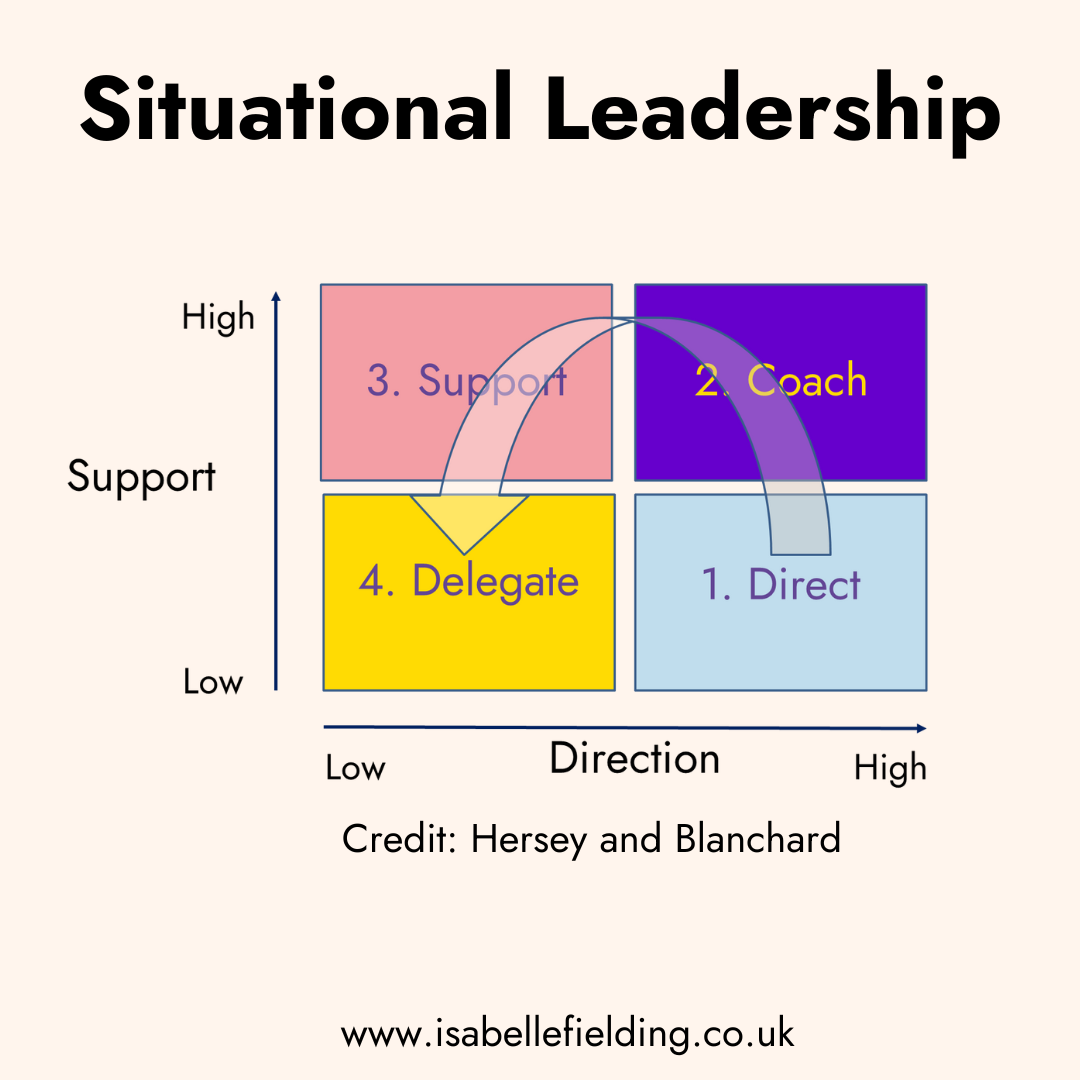Situational Leadership - One size does not fit all
Are you a micro-manger or a champion delegator? Someone who is always there to provide support or someone who promotes independence and autonomy? Common questions in the professional development environment, but they might not be as helpful as they first seem....
There are a few problems with concepts like 'micro-management', 'delegation', 'support' and 'autonomy':

- They tend to hold value judgements: e.g. micro-management = bad, delegation = good. This isn't helpful for people who are really doing their best, but their leadership style isn't quite landing.
- They aren't always well defined concepts. E.g. we tend to equate autonomy with freedom and independence, but they're not the same thing. If we endorse our restrictions, we tend to still feel autonomy (see Self-determination Theory for more on this)
- They don't take into account context OR the other person involved in the interaction (e.g. what is the view of the person you are delegating to, how does the other person feel about your level of support?)
You might think you promote independence in your team and avoid micro management at all costs, but what about the person who actually yearns for what you see as ‘micromanagement’ but they perceive to be a higher level of support?
And you might feel you're being really supportive to everyone in your team, but could that be viewed by the person who
is desperate to be stretched, as micro-management?
Adaptability in management style is crucial, as is an awareness of how your management behaviours are being perceived, and the context in which you're working with others.
This is why HBR articles, soundbites and leadership frameworks will only get you so far! Your context is YOUR context, and unique to you, and the same goes for the people you are leading.
This is why I advocate experiential, contextual, reflective and team-based learning. Yes, understanding leadership concepts and frameworks is a great place to start, but the most powerful learning comes through reflecting on what these concepts mean for you, your team and the context of your organisation.
Granted it's not a quick fix, but it's a MUCH more powerful approach for organisations that really do want to improve the performance and psychological well-being of their staff.
If you're interested in learning more on adaptable leadership styles, you could check out Hersey and Blanchard's work on situational leadership (see also the infographic above). Or get in touch for a quick chat about how I can help you and your leaders to become more reflective, adaptable and effective.

